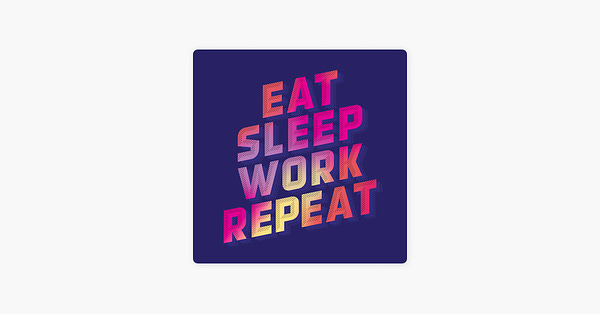The end of workplace culture?
ALSO: Noreena Hertz talks workplace loneliness / Adam Grant wants you to upvote him
Work not feeling enough like Black Mirror for you? Adam Grant and Ray Dalio are persisting with their ‘rate all the people, all the time’ model about giving every colleague a score after every meeting. They’ve brought it to Slack and Teams. The more you think about this the more toxic it is
Google is just one of the firms who have used Omicron as a reason to delay the return to the office again
Someone needs to call in an auditor: KPMG earned headlines this summer for declaring that office work would be four days a fortnight. Scratch that… it’s back to the office four days a week from the new year, gang (plenty of unhappy employees in the comments here. It’s almost like the firm can’t be trusted…)
In contrast, rival firm Deloitte is still saying employees can work where and when they want
The Financial Times gives a round up of what other professional services firms are asking employees
If you’ve had the chance to watch The Beatles Get Back documentary on Disney+ you’ll have enjoyed the glimpse into the creative process that it provides. It’s a pretty clear argument that overcoming workplace tensions can be easier if you’ve built trust with each other with a little laughter here and there. There’s a couple of enjoyable reads on it here: The Guardian, Stephen Johnson
"Fraternity record for most vodka shots in one night” - does anyone actually read your CV? A fraudster created resumes, sent them to desirable firms and found that it seemed like the applications weren’t being read but merely scanned for keywords
I updated my best workplace culture books to read list - I loved the top one
The End of Workplace Culture?
One of my first jobs was in a Mexican restaurant on Friargate, York. It was owned by a Gruffalo of a man, an angry Parisian who seemed to be ancient to my teenage eyes but I now suspect was probably no more than 38.
The Gruffalo was insistent that staff didn’t talk to each other or waste time doing anything as frivolous as smiling. This was easier for him to mandate when he was on the premises but as he only showed up once every week or so there were a lot of gaps for friendship to develop.
It became employee legend that the Gruffalo didn’t pay workers their last pay packet when they were leaving, would fire employees for the most trivial mishap and took a hands-on approach to managing the female staff when his wife wasn’t around.
Despite all of this there was a sense of togetherness of the team working there - and we’d often stay back for drinks or meet-up on nights off.
This easy connection is familiar to everyone who has ever had a job, a working week can be interminable if we don’t find community in the company of the people around us. In fact to a large extent it’s often the people who make our jobs.
One of the things we’ve been given chance to appraise over the course of the last two years is how important these parts of our jobs are to us. As discussed last month having a friend at work is one of the things that determines our happiness in work and engagement with our jobs. In contrast, in that post I mentioned one recent job quitter who had said that they had realised workplace connection was less important for them than money and were happy to go somewhere else better paid.
Adjacent to that debate, former podcast guest, Anne Helen Petersen, and her partner Charlie Warzel have just written a new book which reflects one of the biggest debates just starting about the future of work. Out of Office takes issue with the intensification of employment over the last 40 years - leading to the ubiquitous burnout crisis of 2021. The authors say that the way we will overcome burnout is by separating work from life, creating the boundaries that we’ve all read so much about this year.
(They're also not afraid to include ideas that invite derision, for example their suggestion that no one should be permitted to send an email in the evening seems frankly bananas for anyone who has worked in a company with an international office).
As Petersen emphasises, ‘the greatest trick that offices ever pulled was convincing office workers that they weren’t workers - that they were doing what they loved’. The couple, who themselves met at work, explain that the consequence of this is that our work relationships become the most important dependencies in our lives, squeezing out non-work friendships.
While I recognise that work steals a lot of our attention and energy, what I took issue with was the authors pointing to an American company, Gumroad, which ‘went through this whole reorganisation and… now they don’t have any employees except for the founder. Everyone’s a contractor’. The company is used as an extreme example to make a point but it's their feeling that this is ‘far less toxic than the “we are a family” ethos’ of many companies, ‘at the end of the day, [our jobs are] a transaction’.
This work as a transaction model is at the heart of a new trend emerging from the world of crypto currencies and Web3 - the concept of DAOs, Distributed Autonomous Organisations. DAO companies, like Gumroad, aren't companies in a traditional sense but rather a business plan and a project manager. They might ask, ‘Do we need some marketing?’ And answer, ‘Let's hire the best marketer we can for the next two months’.
Over the last couple of months one of the most impressive companies I’ve worked with invited me to run an offsite discussion for them. One of their leaders used the phrase ‘gig-y’ to describe one future path of work - where workers (either on the payroll or not) might be incentivised with gig economy style payments for doing aspects of the job. To these firms they needed trust employees, but merely pay them for an incentivised transaction.
While the firm I was advising ruled it out for themselves it does chime with the research suggesting there is likely to be a growth of freelance employees in the knowledge work sector. In the future these workers might feel less a sense of connection to their firm but are happy with being able to take in extra work on a take it or leave it basis.
Charlie Warzel in an interview explains why he feels this shift is appealing:
“What’s fascinating is the ethos of [Gumroad] is “You don’t owe us anything but the work. You come in and you do this thing. We are not going to be friends. We’re not going to talk.” It’s extremely transactional, in a way that’s almost kind of cold and in that calculated tech way’.
Has there ever been a more complete misunderstanding of human beings than thinking that coming in to do forty hours of work while not talking and not being friends is better than feeling connected to colleagues?
While journalists like Petersen and Warzel are able to find multiple outlets for their writing, for many workers the uncertainty of knowing which firm might hire them to earn next month’s salary isn’t a more free life, but rather a lonely and financially precarious existence. What this DAO model of work misses is the fact that for many people it’s not just the transactional nature of employment that makes it meaningful but it’s the interaction with other people that helps.
As I mentioned above watching The Beatles’ Get Back documentary serves to demonstrate how the sense of connection that we forge in chat, laughter and companionship serves to lubricate some of the tensions that inevitably arise in workplace relations.
There is no doubt we’re moving towards a world with different models of work: a more gig-y solution will certainly be appealing for some, a traditional 4-day office solution for others but to my mind, the prize will still be scooped by the companies who can invent new ways of ensuring that the joy of working on a shared project with others is transferred into higher motivation and greater personal reward.
This isn’t about tricking people into working harder, but rather a recognition that when we do something that we care about it’s one of the things that gives us meaning in life.
Great workplace cultures are going to become ever rarer but the companies who can create them will reap immense loyalty from their employees.
Will loneliness kill remote work cultures?
Directly related to the above, I wanted to understand if the likes of Anne Helen Petersen and Charlie Warzel are selling us short when they dismiss the value of friendships at work.
For many of us our favourite jobs were enhanced by having a desk buddy - or a group of friends we could laugh with. The idea that somehow this affiliation was another way of The Man sticking it to us seems to be cartoonishly silly. Like me with the Gruffalo, we’re all adult enough to know we can do things that help the company or just help our friends when it comes down to it.
However we need to acknowledge that for many people their experience of work has become increasingly lonely. Maybe they had friends when they were in the office but that reality has transformed in the last two years. Yes, we've managed to get our jobs done, maybe our domestic life has even improved but work just feels a little more isolated and joyless.
How big an issue is this for us? Noreena Hertz is here to persuade you this silent spread of loneliness has wide reaching consequences, both for our organisations and for our societies.
Listen: Apple / Spotify / website (which has all of my notes from reading the book)


Liked this? Found it too long? Disliked it? Hit reply to share your thoughts directly with me. Image by Ian Keefe on Unsplash






